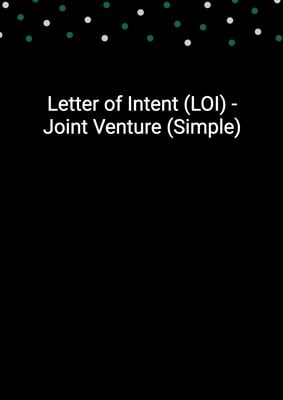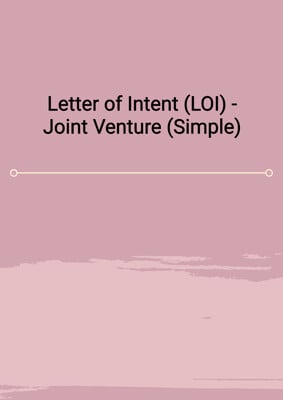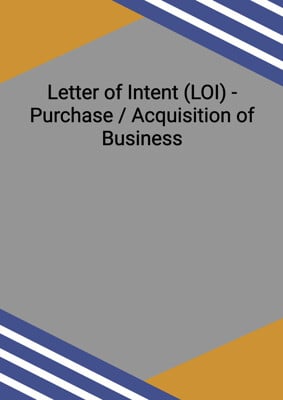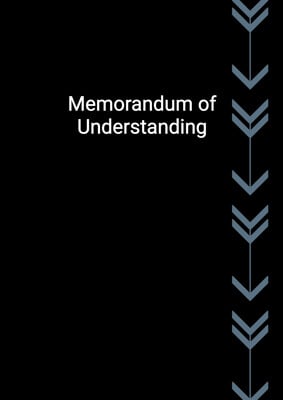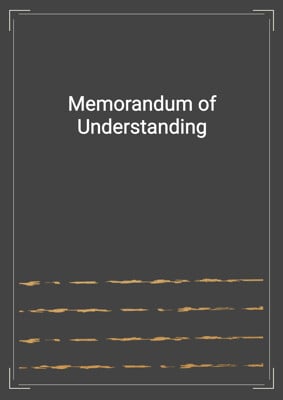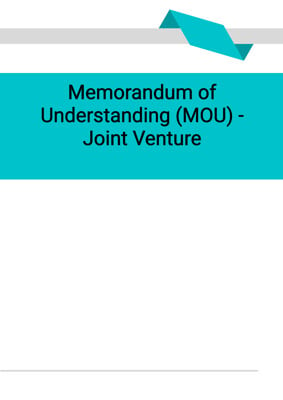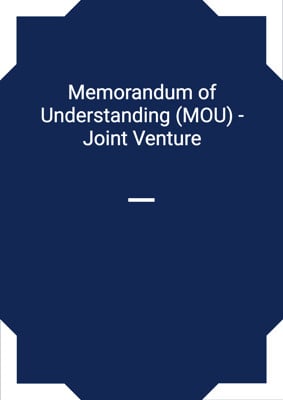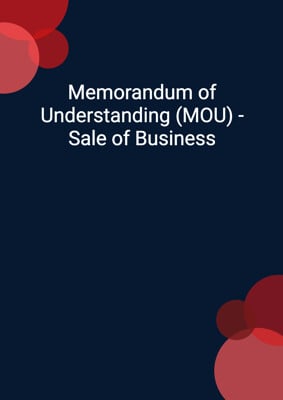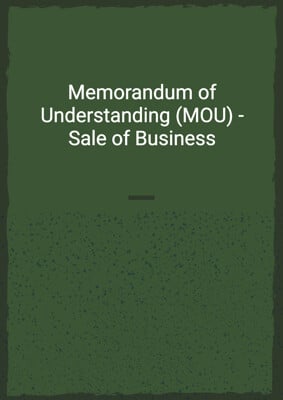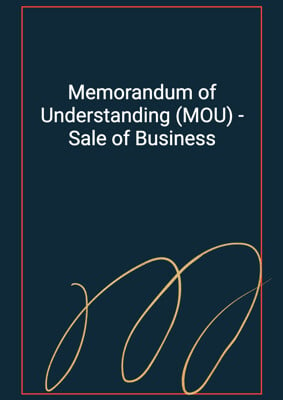How to Tailor the Document for Your Need?
01
Create Document
Fill in the details of the parties. You can click the "Fill with Member’s Information" button to complete it with information saved to your account.
02
Fill Information
Please fill in any additional information by following the step-by-step guide on the left hand side of the preview document and click the "Next" button.
03
Get Document
When you are done, click the "Get Document" button and you can download the document in Word or PDF format.
04
Review Document
Please get all parties to review the document carefully and make any final modifications to ensure that the details are correct before signing the document.
Document Preview
Document Description
This document is a Heads of Agreement (HOA)/Heads of Terms (HOT) for services. It is a preliminary agreement between two parties, referred to as the Customer and the Servicer, who wish to set out the principal terms and conditions for the provision of services. The document highlights the importance of the HOA in establishing the framework for the proposed transaction and emphasizes that a detailed legally binding agreement will be required for the actual provision of services.
The document begins with a brief introduction, stating the names and principal places of business of the Customer and the Servicer. It explains that the Servicer is willing to provide specific services to the Customer and that the parties intend to outline the key terms and conditions in the HOA. It also clarifies that the provision of services is subject to the agreement and signing of a detailed legally binding agreement.
The HOA defines a working day as any day other than a Saturday, Sunday, or public holiday in the jurisdiction country. This clarification ensures that both parties understand the timeframe within which the services will be provided.
The document is divided into several sections, each addressing different aspects of the agreement. The first section focuses on the commercial terms agreed upon by the parties. It outlines the specific terms related to the provision of services, such as pricing and payment terms.
The second section covers the pre-conditions that need to be satisfied before entering into the detailed legally binding agreement. These pre-conditions may include obtaining necessary approvals, completing due diligence, or fulfilling any other requirements agreed upon by the parties.
The third section discusses the assumptions made by the parties regarding the provision of services. These assumptions may include factors such as market conditions, availability of resources, or any other relevant considerations.
The fourth section addresses non-solicitation, stating that neither party shall directly or indirectly solicit or entice away employees or other personnel involved in the provision of services. However, it clarifies that general advertising campaigns not specifically targeted at the other party's employees are permissible.
The fifth section deals with exclusivity. It prohibits both parties from engaging in outside negotiations with third parties for similar arrangements during a specified exclusivity period. This provision ensures that both parties focus solely on finalizing the proposed transaction.
The sixth section covers costs. It states that each party will be responsible for paying their own costs related to the proposed transaction, regardless of whether it proceeds or not.
The seventh section addresses the inadequacy of damages as a remedy for breach of certain clauses. It acknowledges that damages alone may not be sufficient and allows for remedies such as injunction or specific performance.
The eighth section focuses on confidentiality and announcements. It requires both parties to keep any information obtained during the negotiation or provision of services confidential, except in specific circumstances such as legal requirements or disclosure to professional advisers.
The ninth section establishes a jurisdiction clause for resolving disputes arising from the HOA. It specifies the applicable jurisdiction and any other relevant considerations.
The tenth section outlines the procedures for giving notices and serving documents under the HOA. It specifies the acceptable methods of communication, such as email or registered post, and provides the addresses and contact details of the parties.
The eleventh section clarifies that the HOA does not confer any rights on third parties to enforce its terms.
The twelfth and final section states that the HOA represents the parties' good faith intentions to proceed with the proposed transaction but is not legally binding. It emphasizes that the proposed transaction will only proceed upon the execution of definitive legally binding transaction documents.
In conclusion, this HOA serves as a preliminary agreement between the Customer and the Servicer, outlining the principal terms and conditions for the provision of services. It covers various aspects such as commercial terms, pre-conditions, assumptions, non-solicitation, exclusivity, costs, inadequacy of damages, confidentiality, dispute resolution, notices, and legal obligations.
How to use this document?
1. Review the commercial terms: Familiarize yourself with the agreed-upon commercial terms, including pricing and payment terms.
2. Ensure pre-conditions are met: Before proceeding with the detailed legally binding agreement, ensure that all pre-conditions specified in the HOA are satisfied. This may involve obtaining approvals, completing due diligence, or fulfilling any other requirements.
3. Consider the assumptions: Take into account the assumptions made by the parties regarding the provision of services. Assess whether these assumptions align with the current market conditions and other relevant factors.
4. Adhere to non-solicitation obligations: Respect the non-solicitation clause, which prohibits the direct or indirect solicitation or enticement of employees or personnel involved in the provision of services. However, note that general advertising campaigns not specifically targeting the other party's employees are allowed.
5. Honor exclusivity commitments: During the exclusivity period specified in the HOA, refrain from engaging in outside negotiations with third parties for similar arrangements. Focus solely on finalizing the proposed transaction.
6. Manage costs: Understand that each party is responsible for their own costs related to the proposed transaction, regardless of whether it proceeds or not.
7. Consider remedies for breach: Acknowledge that damages alone may not be sufficient in case of breach of certain clauses. Be aware that the non-defaulting party may seek remedies such as injunction or specific performance.
8. Maintain confidentiality: Keep any information obtained during the negotiation or provision of services confidential, unless required by law or disclosed to professional advisers.
9. Follow the specified jurisdiction for dispute resolution: Adhere to the jurisdiction clause specified in the HOA when resolving any disputes arising from the agreement.
10. Comply with notice and service requirements: Ensure that any notices or documents related to the HOA are served in accordance with the specified methods, such as email or registered post. Use the provided addresses and contact details of the parties.
11. Understand the absence of third-party rights: Note that third parties do not have the right to enforce any terms of the HOA.
12. Recognize the non-legally binding nature of the HOA: Understand that the HOA represents the parties' intentions to proceed with the proposed transaction but does not create legal obligations. The proposed transaction will only proceed upon the execution of definitive legally binding transaction documents.
Not the right document?
Don’t worry, we have thousands of documents for you to choose from:













